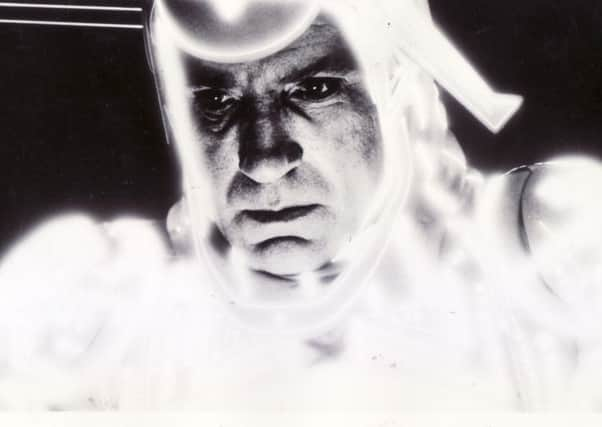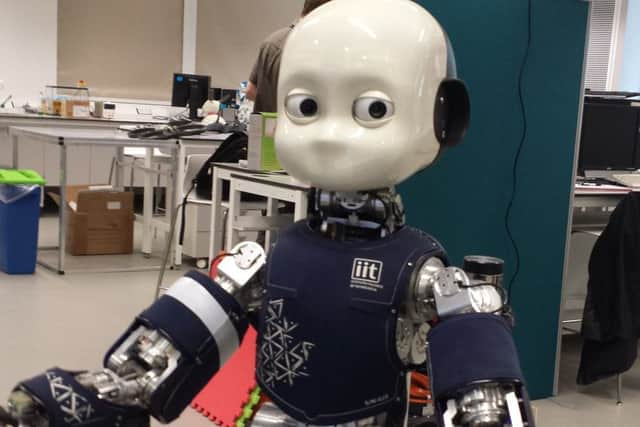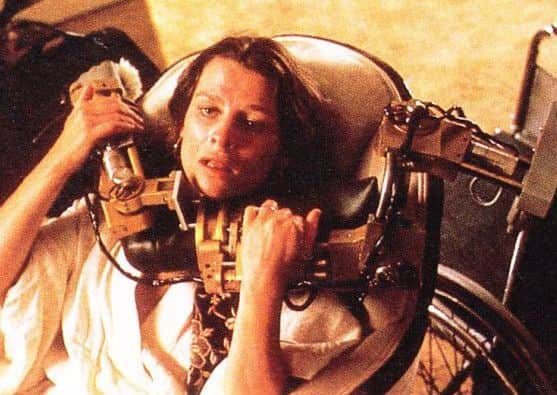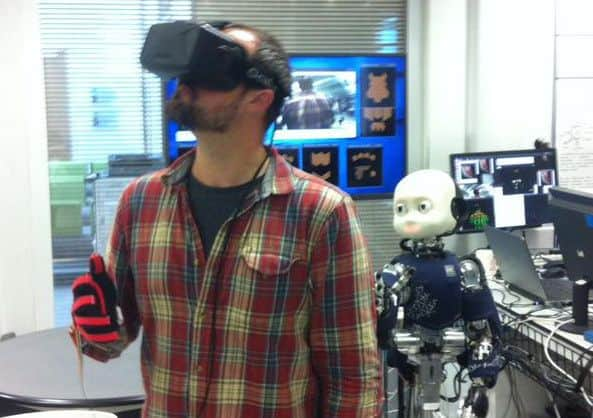Reality of movie nightmares


Robosapiens explores how real technologies such as virtual reality, remote presence and robotics are shaping our aspirations and anxieties, and how the imagined technologies of our movie dreams and nightmares may be becoming real.
Will homo sapiens give way to robo sapiens?


Tonight audiences will see the 1977 film, Demon Seed, starring Julie Christie as a woman imprisoned and forcibly impregnated by a demonic AI computer, Proteus IV.
Advertisement
Hide AdAdvertisement
Hide AdEach screening has an introduction by an expert in the field, among them Michael Szollosy, Research Fellow at Sheffield Robotics
The Canadian’s background is in psychoanalysis rather than science and he was recruited by Sheffield Robotics to give a cultural perspective on robots.
“The film series is part of the university public engagement and demonstrating we are doing interesting things but in this case it’s a bit more,” he says.


Frankenstein looms over the public’s view of science, he suggests. “Frankenstein is a metaphor for robots and the idea of a man-made humanoid overcoming its master and becoming sentient and taking over the world is the fundamental basis of most robot stories.
Advertisement
Hide AdAdvertisement
Hide Ad“My job has always been to teach people not to be afraid of robots and explain why we are doing what we do. We have to understand what it is frightens people.
“If someone says we need to have serious conversations about what happens when robots become sentient they are right, we do,” he concedes. “But Tony (Prof Tony Prescott, Director of Sheffield Robotics) is very pragmatic – that’s not going to happen tomorrow and is not the rea l concern.
“We are nowhere near Terminator. But in watching how robots acquire artificial intelligence we understand humans better, what makes them special and how the brain works. You see how virtual reality comes into it and the idea of human consciousness,” continues Szollosy.


“Fear of robots is very much a fear of ourselves. We are afraid that robots are becoming ourselves. This was something that Blade Rider was about in which we can’t tell who’s a human and who’s a machine. Our fantasies are projected on robots in the same way they were previously with zombies, vampires and Dr Jekyll and Mr Hyde.
Advertisement
Hide AdAdvertisement
Hide Ad“Films are a great way to get into all this and to help make the public understand,” he concludes. “I can show Avatar and say, ‘watch this and we can talk about the issue afterwards’ or Surrogates and talk about Facebook. But how do you start a discussion without a cultural context?”
Demon Seed is showing at the Showroom today, Thursday, and future screenings are Stepford Wives, Thursday, February 11, and Tron, Tuesday, March 29, all at 6pm.